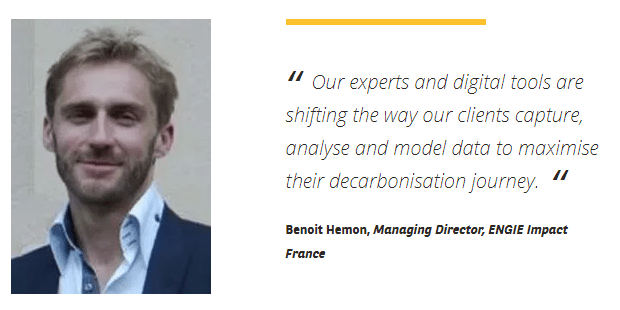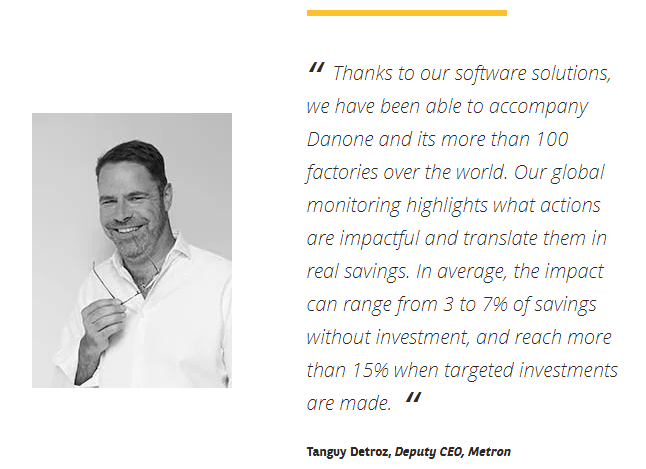At Hello Tomorrow, the tech industry explained the role that technology can play to fast forward decarbonisation.
Energy efficiency is the first lever to reduce greenhouse gas emissions: it could account for 40% of carbon reductions by 2050. It will be key to achieve carbon neutrality by 2050 and reach the goal set by the European Commission. To tackle this world challenge, BNP Paribas invited Metron and ENGIE around the table to discuss how deep technologies could accelerate energy efficiency. Here are some key takeaways.
Innovation & technology as a way to better serve clients
Technology is a key lever to optimise consumption and measure impact. Cleantechs like Metron or corporates like ENGIE Impact can lean on data-analytics and artificial intelligence (AI) to accompany their clients in their transition to net–zero.
Software solutions like Metron’s can help clients reduce their CO2 emissions and energy consumption, by helping them pilot their processes more efficiently, identifying improvement opportunities and reducing their costs linked to energy. All this has a direct impact on their CO2 consumption.
ENGIE Impact’s Zero Carbon platform “Ellipse”, supports corporates in advanced scenario modelling and performance management to measure progress, track investments and optimise performance across decarbonisation programmes. Collected data can be used to measure impact locally, on a multi-site programme or full global approach.

Technology is changing the strategic vision in the industry
This multi-site approach couldn’t exist without technology: maturity of tech and a global vision can revolutionise energy efficiency approaches and emit less CO2. AI is key to gather and analyse data, in order to improve continuously all the processes (heating, cooling, compressed air, etc.) and reduce energy intensity.

Technology as an enabler for “augmented humans”
This approach doesn’t mean that technology will replace humans. We need people from different backgrounds to have the most comprehensive approach to develop digital tools and experts to implement the technology. Algorithms will analyse variables (cost of CO2 tons, impact of weather, etc.) and help people make better, faster and more informed decisions to increase their energy efficiency performances.
Technology is also a key enabler to bring more transversality, as it can connect plants globally and allow them to share best practices. In other words, technology is one of the keys for change management.
Accompanying start-ups to boost energy transition
To boost energy transition, BNP Paribas is supporting start-ups with several initiatives:
- We Are Innovation (WAI): an ecosystem to incubate start-ups, finance their growth and connect them to big corporate clients;
- The BNP Paribas Paris Solar Impulse Venture Fund: a €150M fund to finance high potential start-ups committed to the ecological transition. BNP Paribas €75M commitment to the fund highlights the strong ambition of the Group to support young and innovative cleantech companies.

